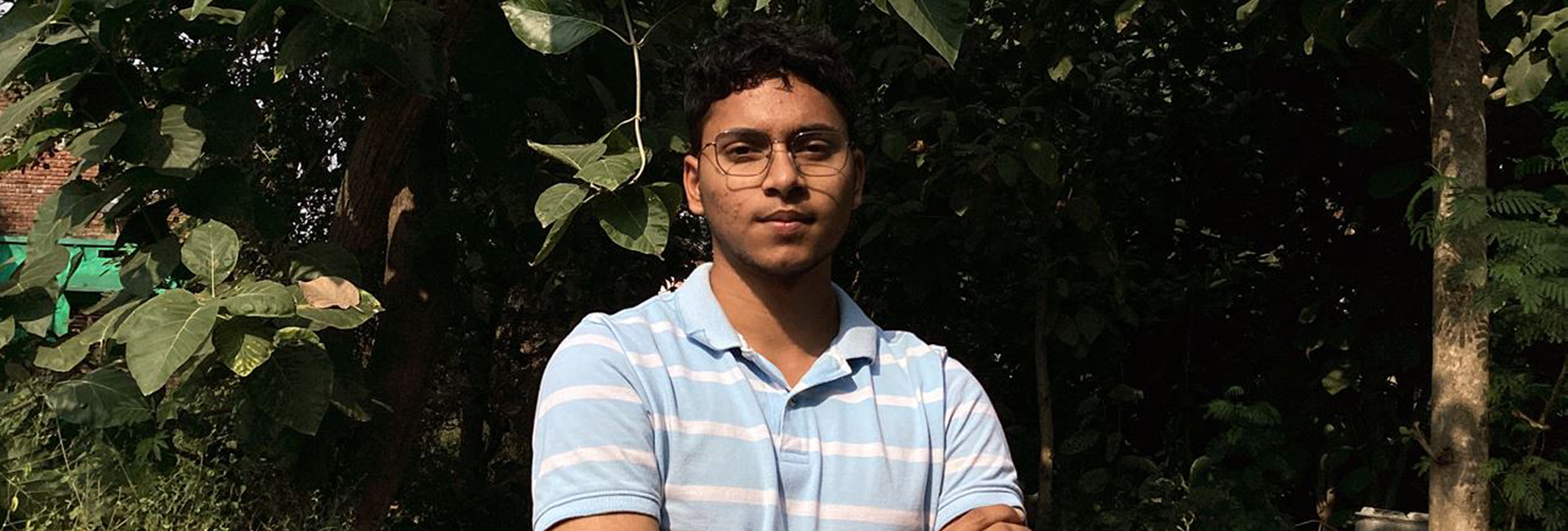(May 10, 2023) One balmy afternoon in 2019, when Charlotte-based Navami Jain was desperately searching for the venue for a college admissions interview scheduled to start in the next ten minutes, her phone kept ringing incessantly. In a panicked state, she picked up the call only to find that she was one of the 40 finalists selected for the Regeneron Science Talent Search that year. “I was so shocked that I stopped walking,” she said. Then a 17-year-old senior at North Carolina School of Science and Mathematics, Navami was recognised for her relentless effort to produce bioethanol from agricultural waste products.
“The major controversy around ethanol production is that it is being produced from food-based crops like corn. I’m looking at ways to produce it from agricultural-based matter and different waste products such as wheat straw,” Navami said in an interview.

Navami Jain
The Stanford University School of Medicine student was always passionate about science. But it was during middle school that she began her research while her trip to India during her summer break to meet her grandparents. With a little help from her grandfather, who is a retired biochemist, she began dipping her toes into converting agricultural waste products into fuel-grade ethanol. The idea came to her during her freshman year at Myers Park High School when she was interning in a biochemistry lab. Here she saw researchers trying to repurpose India’s plentiful sugarcane waste into biofuel. This hooked her on the process of scientific discovery.
Two years later, this passion led her to the North Carolina School of Science and Mathematics. “One of the major factors that drew me to NCSSM was the different research opportunities and the prospect of continuing what I had started that summer in India. You’re given the funding and the space to pursue any research project you’re interested in,” she said in an interview.
During the next few years, she performed a series of assays looking at different ways to produce bioethanol, a type of biofuel that is considered greener than conventional fossil energy sources as it is biodegradable and non-toxic. In the last few years, bioethanol has gained considerable attention due to its potential to reduce greenhouse gas emissions and dependency on fossil fuels. Agricultural waste products, such as crop residues and lignocellulosic biomass, are abundant in India, and their conversion into bioethanol could provide an eco-friendly, cost-effective solution to the country’s growing energy demands.


Her research focused on developing a novel method for converting agricultural waste products into bioethanol using a combination of enzymatic hydrolysis and fermentation processes. This innovative approach not only optimized bioethanol production but also addressed the issue of waste management in India’s agricultural sector. By converting waste products into valuable resources, Jain’s work demonstrated the potential of a circular economy that benefits both the environment and the country’s energy infrastructure.
Navami’s award-winning research has significantly contributed to the bioethanol movement in India. Her innovative approach to producing bioethanol from agricultural waste products has opened up new possibilities for utilizing India’s vast biomass resources sustainably. Moreover, her work has generated interest and investment in the field, thereby promoting the development of a bio-based economy in the country.
Navami’s groundbreaking research on bioethanol production from agricultural waste products has had a far-reaching impact on India’s energy landscape. Her work has not only showcased the potential of bioethanol as a sustainable energy source but has also paved the way for the development of a circular economy in the country. As India strives to achieve its renewable energy targets and reduce its carbon footprint, bioethanol – fueled by the innovative efforts of pioneers like Jain – is set to play a significant role in the country’s transition to a greener, more sustainable future.
- Follow Navami Jain on LinkedIn




